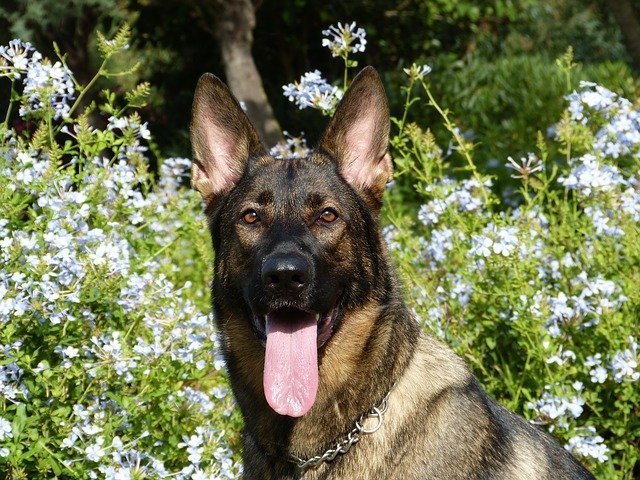If you notice a dog breathing heavily with tongue hanging out, it can be a symptom of:
- Heatstroke
- Poisoning
- Respiratory disorders
- Overheating and chronic illness.
Dog Breathing Heavily With Tongue Hanging Out
Although some heavy breathing is normal in dogs, If the labored breathing is excessive, you should take your dog to a clinic and consult your veterinarian.
Earlier this week, I had a small emergency with my dog. While playing on a hot summer day, he was happy and playful and panting a lot.
Soon afterward, I noticed my dog breathing heavily with tongue hanging out.
The dog was overheating, and, thankfully, he is fine.
But after going through this ordeal, I started researching and learning about the various reasons behind heavy breathing in dogs.
When a dog is breathing heavily with its tongue hanging out, that can be a symptom of a heatstroke, poisoning, respiratory disorders, or heart and chronic illnesses.
Although some heavy panting is normal in dogs, if the labored breathing is excessive, you should take your dog to a clinic and consult your veterinarian.
Dog Breathing Heavily Is It Always a Reason For Concern?
First off, let’s talk about normal breathing in dogs.
According to experts, dogs take 30 to 40 breaths per minute. They will breathe heavily or pant with their tongue hanging out if they are too warm, excited, or stressed.
Canines also tend to stick their tongues out quite often, especially if it’s warm outside since that cools them down.
So, if your dog is breathing a bit more heavily for a short time, or with its tongue hanging out after excessive exercise, for example, there is no need to panic.
However, if the breathing changes suddenly, or if you notice other changes in behavior, like the dog hiding or acting tired, you might have a reason for concern — especially if this goes on for a while.
Five Most Common Reasons for a Dog Breathing Heavily With Tongue Hanging Out
1. Respiratory Disorders
Like with humans, a dog’s respiratory system includes several parts: nose and mouth, throat, trachea, and lungs.
Obstruction or disease in any of those parts can cause breathing problems.
If the dog suffers a respiratory system disease, the symptoms will likely appear gradually and over time.
With age, there is an average decline of respiratory functions. That means that older dogs can experience some breathing difficulties.
Some dog breeds are also more susceptible to breathing problems.
Small, flat-faced dogs like Pugs and French Bulldogs are usually loud, heavy breathers because of their short and narrow nostrils.
2. Poisoning
Aside from respiratory issues, in the case of poisoning, you will probably notice other symptoms.
Your dog may also experience diarrhea, vomiting, and blood in the stool (depending on the poison).
3. Heatstroke
Dogs will breathe more heavily when they are too hot.
It is important to notice the difference between your dog feeling hot, and your dog having a heatstroke.
Additional symptoms of heatstroke include vomiting, diarrhea, thick saliva, and a bright red tongue.
4. Pain
If a dog is in discomfort and in pain, regardless if it is a result of some injury or illness, its breathing patterns might change.
There will be other symptoms like loss of appetite, hiding, or licking a particular body part.
5. Congestive Heart Failure or Heartworms
Congestive heart failure means that your dog’s heart is damaged and is not pumping enough blood.
As a result, its body cells are not getting enough oxygen and the respiratory system has to work extra hard, which may cause heavy breathing.
Heartworm is a parasite spread by mosquito bites that can infect the dog’s heart and lungs.
In the case of congestive heart failure or a heartworm infestation, your dog will breathe heavily.
It will also show less interest in exercising and cough because of retained fluids in the lungs.
Both conditions can be life-threatening and need professional treatment.
What Can I Do?
Preventing the symptoms is always better than having to treat them.
- Take your dog for regular health-checks. Give your pet preventive medication along with regular exercise and a healthy diet. If your dog receives proper care, the chances that some illness or heartworm will go undetected are slim.
- Furthermore, you can prevent heatstroke that would cause heavy breathing by always making sure your dog has enough water and shade. Never leave your pet in a closed vehicle or in the sun.
- If you suspect heatstroke, cool down your dog with cold towels and take it to the vet.
The best and safest advice in the case you notice your dog breathing heavily with tongue hanging out is to take your pet to the nearest vet clinic immediately.

